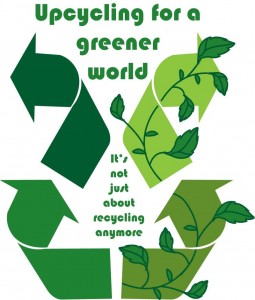 Perception is reality. That’s a mantra that I wallow in daily, using it as both a business/marketing lever, and as a psychological anchor. It reminds me that, for good or ill, our world and our positions in it are largely self-created.
Perception is reality. That’s a mantra that I wallow in daily, using it as both a business/marketing lever, and as a psychological anchor. It reminds me that, for good or ill, our world and our positions in it are largely self-created.
The implications of this are usually pretty stark.
That’s never been more clear, to me at least, than in the wrap-up and the look back at this year that just ended. The perception—and I don’t think I’m alone in this—is that 2014 was one godawful year. It was a year of fear, and of bouncing from one crisis to another. It was a year of reactions, and of being reactionary. It was not a year of progress, or cooperation, or communal synergy.
At least, that’s the perception. Any objective analysis has to allow that developments in ’14 weren’t uniformly bad. There was economic recovery, there were tantalizing hints that intelligent collaboration could, against all expectation, trump some of our thorniest problems.
But objective reality aside, we have to come to grips with the pessimism that 2014 engendered, and with the frightening truth that this pessimism (which doesn’t seem likely to abate just because the calendar clicked ahead one digit) is going to be self-perpetuating. And I have to come to grips with my own participation in that.
Because to be sure, I do have my own whopping dose of pessimism. It’s hard to shake.
Having examined it, though—or to be more accurate, having examined its root causes—I’ve sort of hardened into being a single-issue pessimist. Which is another way of saying I’m now a single-issue voter, and ultimately a single-issue obsessor.
It’s like this: climate change is the problem that edges out all others. That’s not to say all those other problems aren’t pressing—they certainly are. But climate change, and the wider issue of environmental degradation, is existential. We ignore it, and all the others sooner or later become moot.
problems aren’t pressing—they certainly are. But climate change, and the wider issue of environmental degradation, is existential. We ignore it, and all the others sooner or later become moot.
That’s the pessimism, and the perception shaping our sad reality. The counterbalance to that must be a new perception, an optimistic one, that we can beat this thing.
You know what? We can. The solutions, when implemented, will be technical. Getting to implementation, though, will require personal, political, societal and cultural shifts. Daunting, but doable.
My hope—go ahead and call it a resolution—is that in 2015 we can start down that road. My hope is that all of us take responsibility for doing so—waiting for leaders to act is no longer an option. We must be the leaders. We have to set the example, and thereby set the course.
Reduce, reuse, recycle, upcycle. These aren’t hippy-dippy gestures, they’re collective actions that get results. They contribute to the solution by mitigating our individual contributions to the problem. And just as importantly they demonstrate, in that powerful way that only action can, that we’re committed to self-preservation.
This little weekly(ish) screed of mine has mostly been committed to art, culture, and literature; and only occasionally straying onto the heavy side. I prefer to keep it that way. Art is a refuge.
But art also has a long and proud history of progressivism,  and of blazing a trail toward uncomfortable truths and unexpected solutions. May that ever be so.
and of blazing a trail toward uncomfortable truths and unexpected solutions. May that ever be so.
The arts very much have a role to play in this unfolding drama. Artists have the opportunity, some might say the responsibility, to comment loudly and persuasively on what’s happening now, and what must happen next. And they have a moral duty to adjust their own practices and lifestyles, whenever and however they can.
Let sustainability be our guiding principle for art and for life in 2015. In the final analysis, be it pessimistic or otherwise, or absolutely objective, it’s the only path to survival.